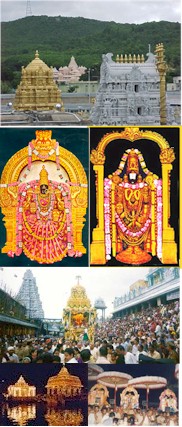Welcome to Adiyen Sri Ramanuja Dasan !
" Srimathe Ramanujaya Namaha !"
The question arises as to how much before sunrise or sunset. For the purpose of vedic rituals the duration of day (Sunrise to Sunset) is divided into 5 parts, the first part called pratah, second sangava, third madhyahna, fourth Aparahna and the last sayam. Under Indian conditions one fifth part of day or night varies from 2h 10m to 2h 20m (It will be more in higher latitiudes). Thus the benefits of Sabdya extend for a duration of about 2h 10m on either side of sunrise or sunset.
Under Indian situations it can be broadly indicated that the best period for Pratah Sandyavandanam is between 5 & 6 AM while for Sayam sandyavandanam it is between 6 & 7 PM. For Madhyanika it is the third fifth part of the day for maximum benefits. The timings above are from considerations of maximum benefit. However it is important to note that benefits will be there even when there are departures and this has been recognized in the smrithis.
Every individual should therefore strive to perform Sandyavandanam at a time as close to sunrise or sunset as possible but should not give it up due to circumstances. In these cases, the individual should mentally contemplate on Aditya by reciting one gayatri at the time of sandya from wherever he is place at the time. A person who is unwell can perform Sandyavandam mentally without water from his sick bed.
Things you need
Vessel: Studies in naturopathy have shown that water kept in copper, silver or gold vessels help to improve bio-electricity in our body. Hence it would be preferable to use copper or silver vessel for sandyavandanam.
Clothes: Studies in naturopathy have shown that wool and silk are not good conductors of bio-electricity while cotton is. Hence it is desirable to wear cotton clothes while performing sandyavandanam (as we acquuire bio-energy from surroundings).
Sandyavandanam should be performed outdoor as far as possible.
Pratah Sandyavandanam is performed facing east.
Madyanukam is performed
facing east or north.
Sayam sandyavandanam is performed facing east upto
'Arghya pradhanam' and facing west beyond that. (Japam is done sitting).
Exceptions
Manasika snanam and mantra snanam
Snanam means bath. The normal bath we take by pouring water on our body is called "Varuna snanam". Vedas recognize varuna snanam is not possible everywhere and under all circumstances. Hence vedas recognise several alternative forms of bath.
Jai Srimannaryana !
Thanks for your valuable time. Visit our web site again for more information and latest updates.

